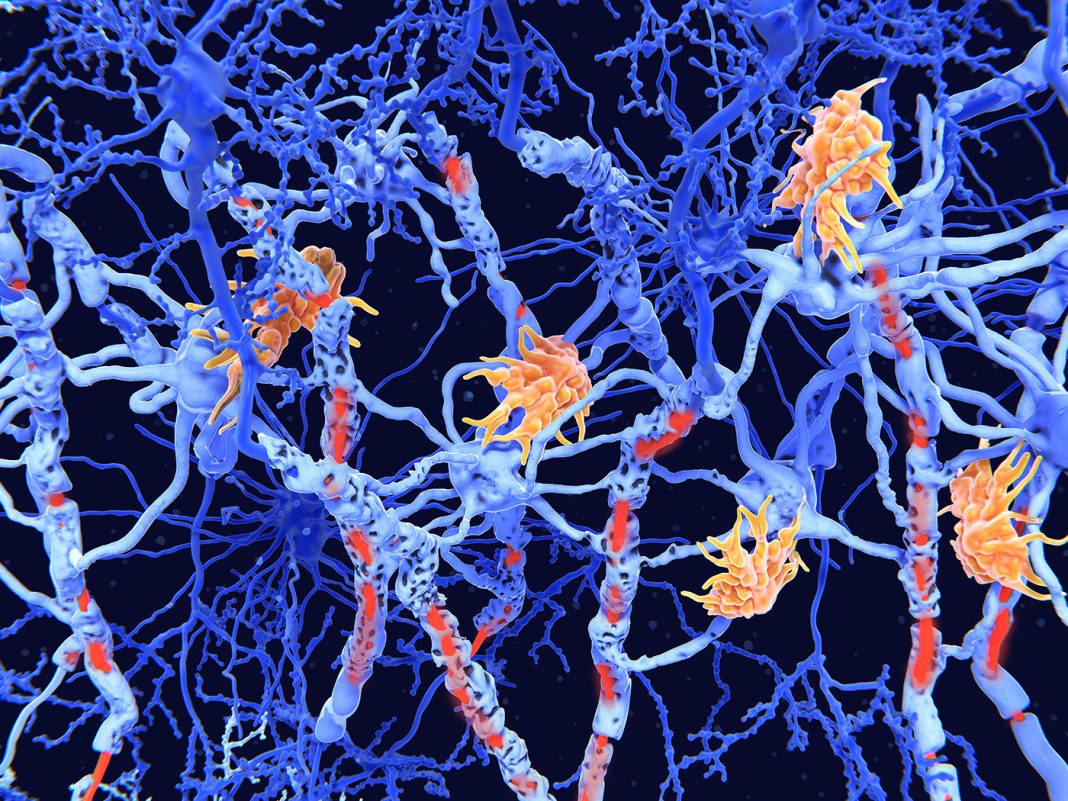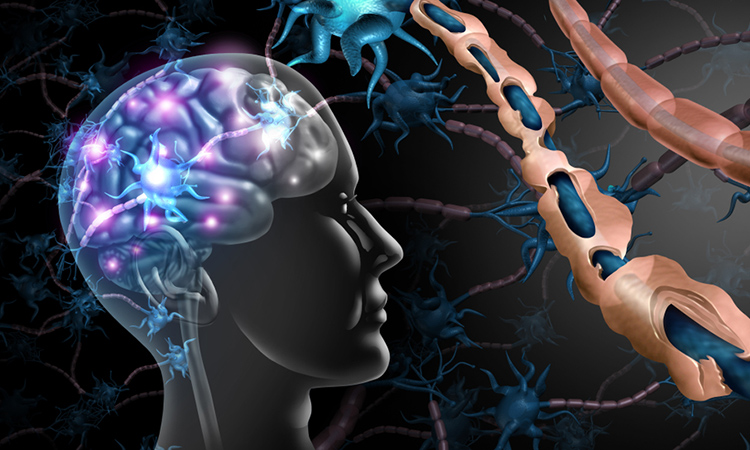Multiple sclerosis (MS), a potentially disabling disease in which the immune system attacks the myelin sheath of nerve cells, currently lacks a cure. The available treatments are designed to speed the recovery from attacks, modify the course of the disease, and manage symptoms. Emerging therapies include stem cell transplantation, which can “reboot” the immune system so that it no longer attacks myelin or causes inflammation in the brain and spinal cord. Stem cell transplantation is so promising that many clinicians advocate using it more liberally, at least for people with very severe MS. [Juan Gaertner/Science Photo Library/Getty Images]
Researchers maintain that patients with severe multiple sclerosis should be able to receive autologous hematopoietic stem cell transplantation as a first-line therapy
There is a huge unmet medical need in the treatment of multiple sclerosis (MS), with many neurologists believing that without effective therapies, most patients will never be able to come off disease modifying treatments (DMTs), according to Dame Pamela Shaw, MD, professor of neurology at the University of Sheffield and director of the Sheffield Institute for Translational Neuroscience (SITraN).




